
Want to nominate someone? Fill out MPA's nomination form!
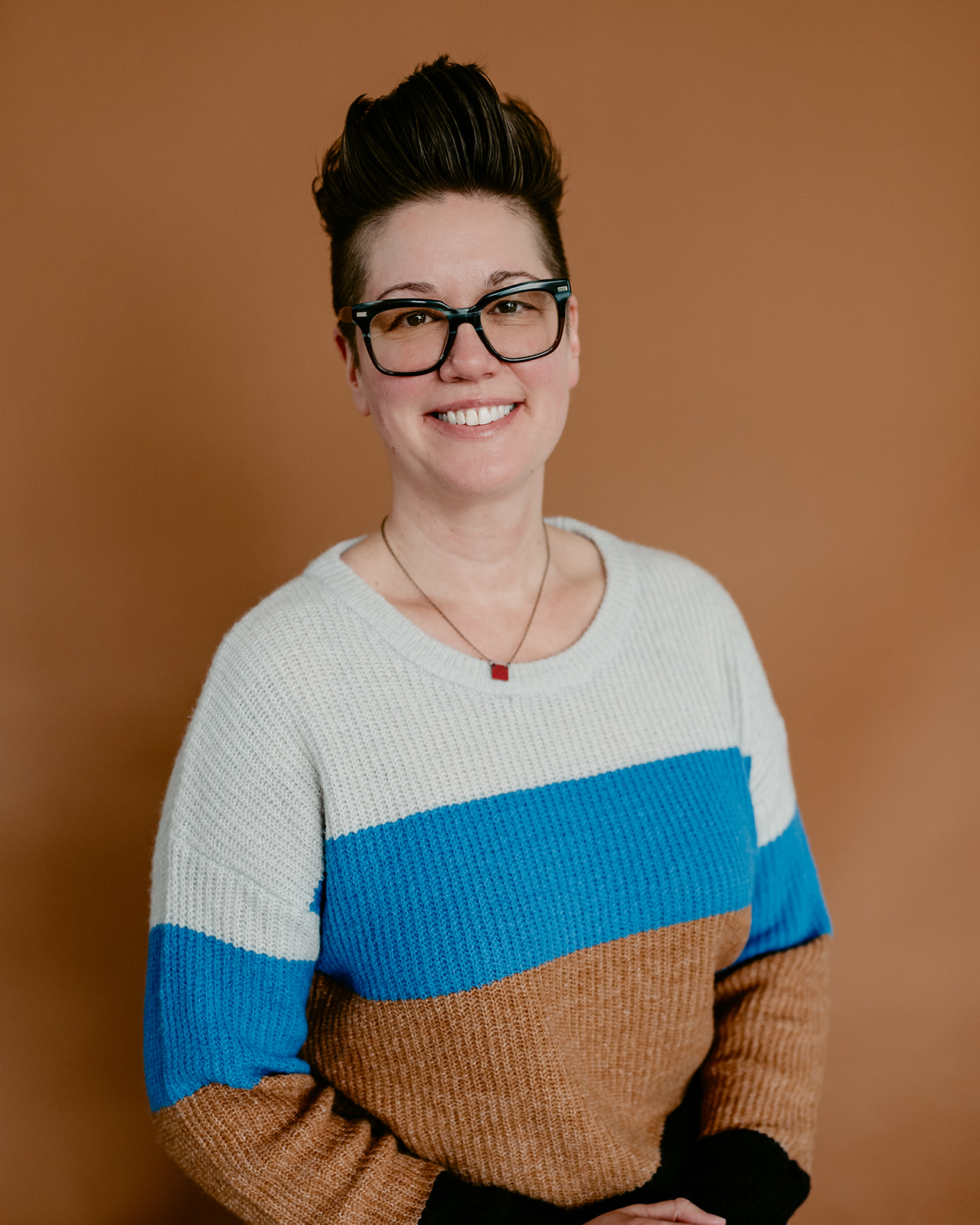
Meet Dr. Melanie McNally!
Having recently moved from the Chicago area, Dr. Melanie McNally is busy establishing a psychotherapy practice in the Upper Peninsula. However, she and her husband are also busy hiking with their three dogs as they explore the UP. After earning her PsyD in Clinical Psychology, she began a private practice in 2015, which has now become a teletherapy only service. As a clinical psychologist, she says that her specialty is helping Gen Zers become the superheroes of their life stories by decreasing anxiety and building self-confidence. And if she is on a mission, it is to help people feel comfortable in their own skin – flaws and all. “I think so many mental health issues are rooted in this discomfort,” she says. Dr. McNally and her husband are childfree by choice and their family currently includes their three dogs – Watson, Derby, and Mini. “Our dogs are a central part of our life and included in pretty much everything we do,” Dr. McNally says. She enjoys mountain biking, hiking, and reading. At this time, she is simultaneously reading Under a White Sky by Elizabeth Kolbert and The Joy Diet by Martha Beck. “Under A White Sky is all about climate change and how much humans are ruining things,” she says, “so I really needed something positive to counterbalance it.” She adds that she read a lot and her favorite book of 2021 so far is The Extended Mind: The Power of Thinking Outside the Brain by Annie Murphy Paul. Dr. McNally wrote a novel, Counting Dragonflies, and an accompanying workbook to go along with it. The novel and workbook are for tweens and teens and both are available through her website (destinationyou.net). She says when she came to Michigan she immediately joined MPA and signed on with the Communications Committee as a way to get involved and to meet other Michigan psychologists. She is also trying to create a UP division for area psychologists. “So if you are interested,” she says, “please let me know!”
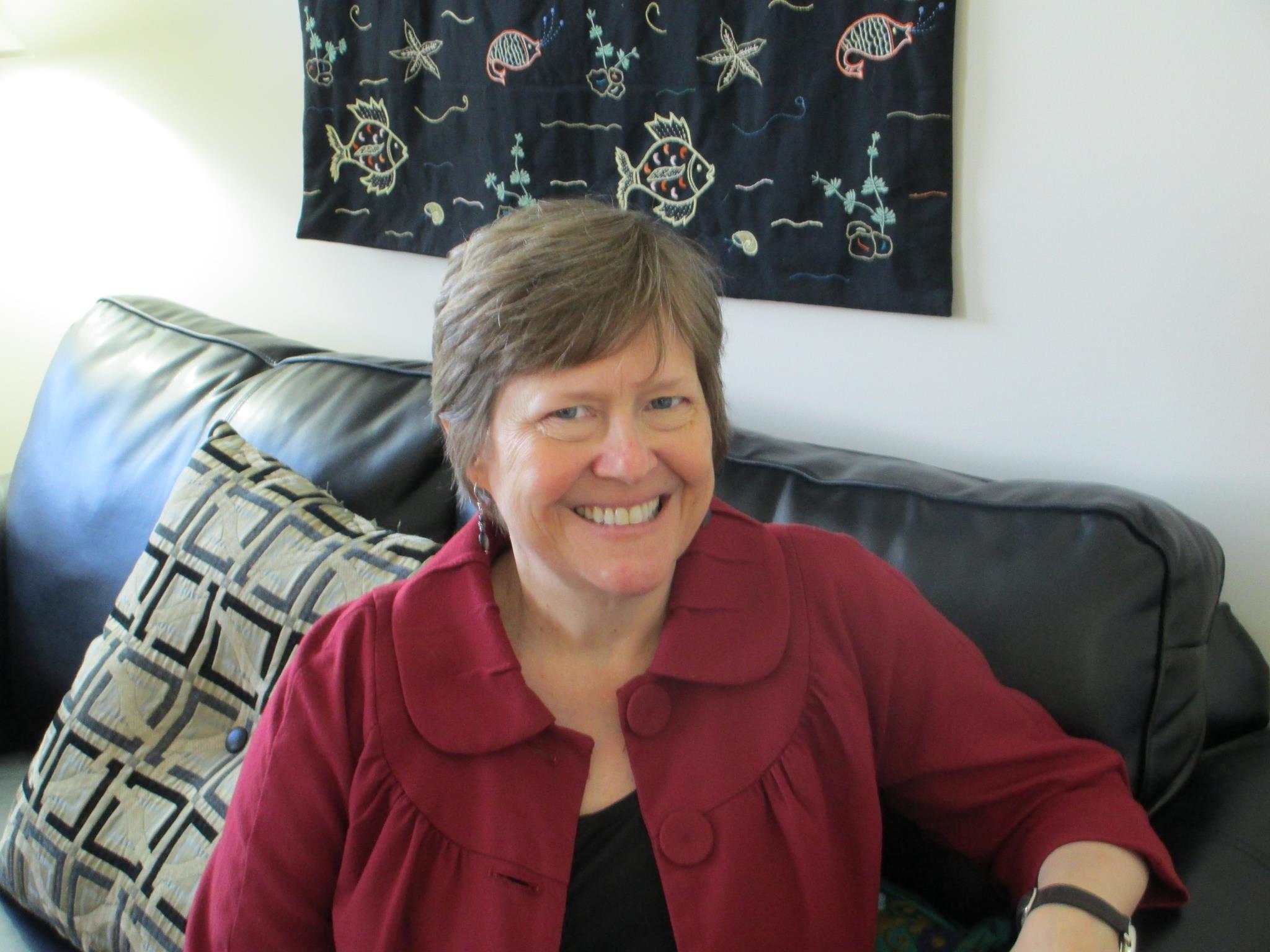 Meet Cynthia Schroeder Rodriguez! Meet Cynthia Schroeder Rodriguez!
Cynthia Schroeder Rodriguez, currently in her fifth year serving as MPA Secretary, has a PhD in Clinical Psychology from Loyola University Chicago (1989). Her training included a child clinical internship at Michael Reese Medical Center. While living in Chicago she worked in pediatric, community mental health, and private practice settings. As a child and adolescent staff member at an APA-approved internship site she supervised psychology interns and externs and taught a Child and Family Seminar. In 2001 Dr. Rodriguez and her family moved to Grand Rapids, where her independent practice now focuses on children, adolescents, and women. She believes that today's youth often need help building skills for managing emotion, tolerating stress and frustration, solving problems, and connecting with others in meaningful ways. Particular clinical passions include working with teenage girls and their moms, as well as consulting with parents in general. Dr. Rodriguez has two grown daughters and is married to Rogelio Rodriguez, PhD, Program Manager for several VA outpatient mental health clinics in western Michigan. She has a tortoiseshell cat named Willow and enjoys playing the oboe and piano, trail walking, and volunteering for environmental causes. Currently on her nightstand: "A Perfect Spy" by John Le Carré and "Begin Again" by Eddie Glaude Jr.
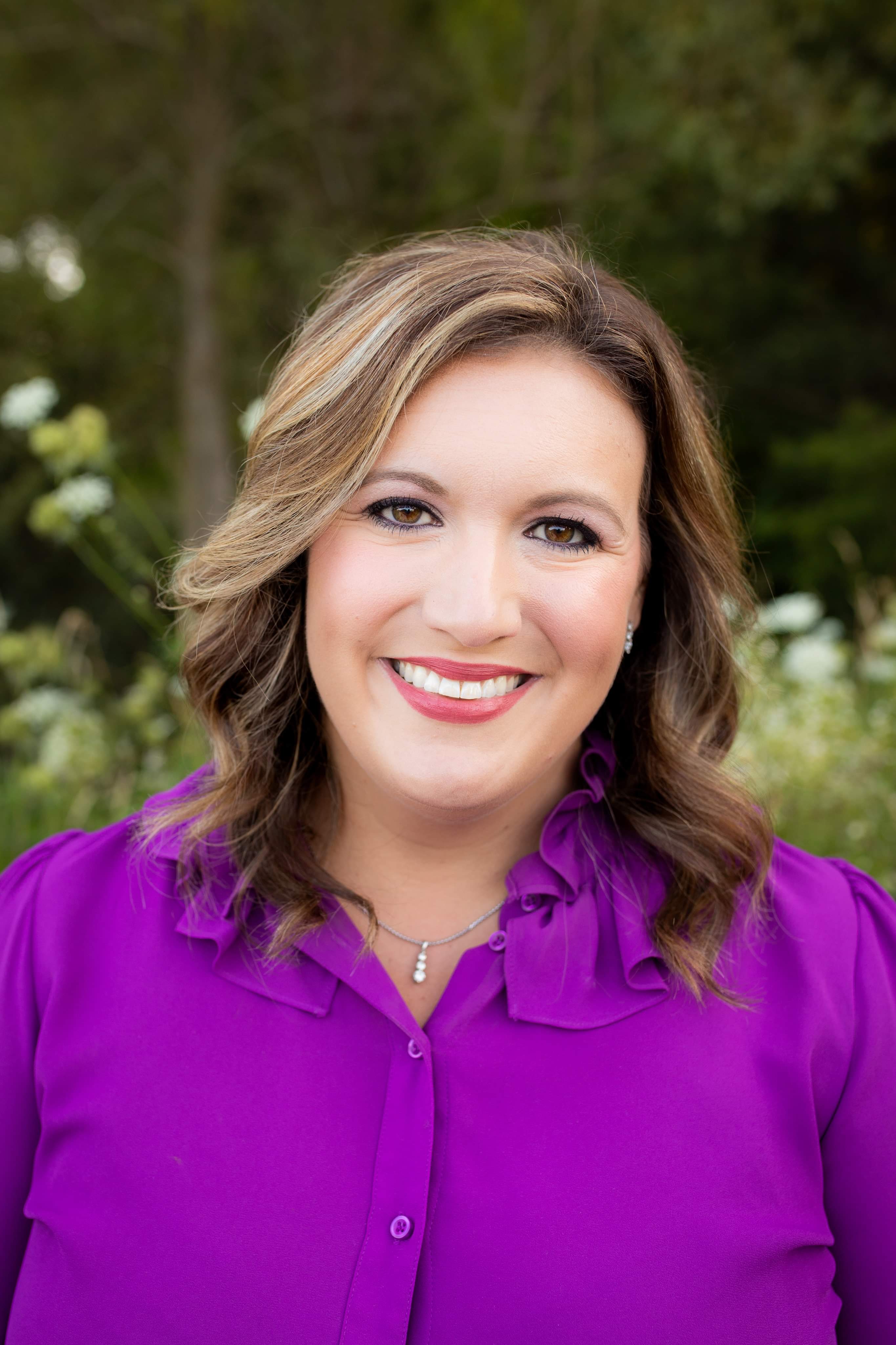 Meet Dr. Brittany Barber Garcia! Meet Dr. Brittany Barber Garcia!
Dr. Brittany Barber Garcia works at Spectrum Health Helen DeVos Children’s Hospital, Sections of Pediatric Behavioral Health and Pediatric Pain and Palliative Medicine in Grand Rapids and she serves as the Chief of Psychology for the Spectrum Health Medical Staff. There she conducts psychological assessments and treatment of children and adolescents with somatic symptom disorders, primarily chronic pain. After graduating with a PhD in Counseling Psychology from Marquette University, Dr. Barber Garcia has discovered that she is truly a clinician at heart. “I love being able to connect with children and adolescents to help them identify their struggles and figure out how to move forward.” She says that she takes pride in developing therapeutic relationships with teenagers who really do not want to come see a psychologist in the first place. She is married and has two young children; a 7-year-old daughter, who loves to dance and swim, and a 6-year-old son, who loves his "Ninja" classes. They have one dog, Cooper, and shh... don't tell her kids that she and her husband are planning a puppy surprise for Christmas morning! Dr. Barber Garcia’s hobbies include reading, running, and listening to audio books while running. She was recently elected to the School Board of Caledonia Community Schools, which is both her alma mater and her children's school district now. She sits on the board of a non-profit organization, has been the chair of the CYF Committee for five years, and is looking forward to serving in her new role as MPA President-Elect. The only book on her nightstand (due to the aforementioned audio book habit) is a Five-Minute Journal, which she uses to focus on gratitude and jot down her kids' funny sayings.
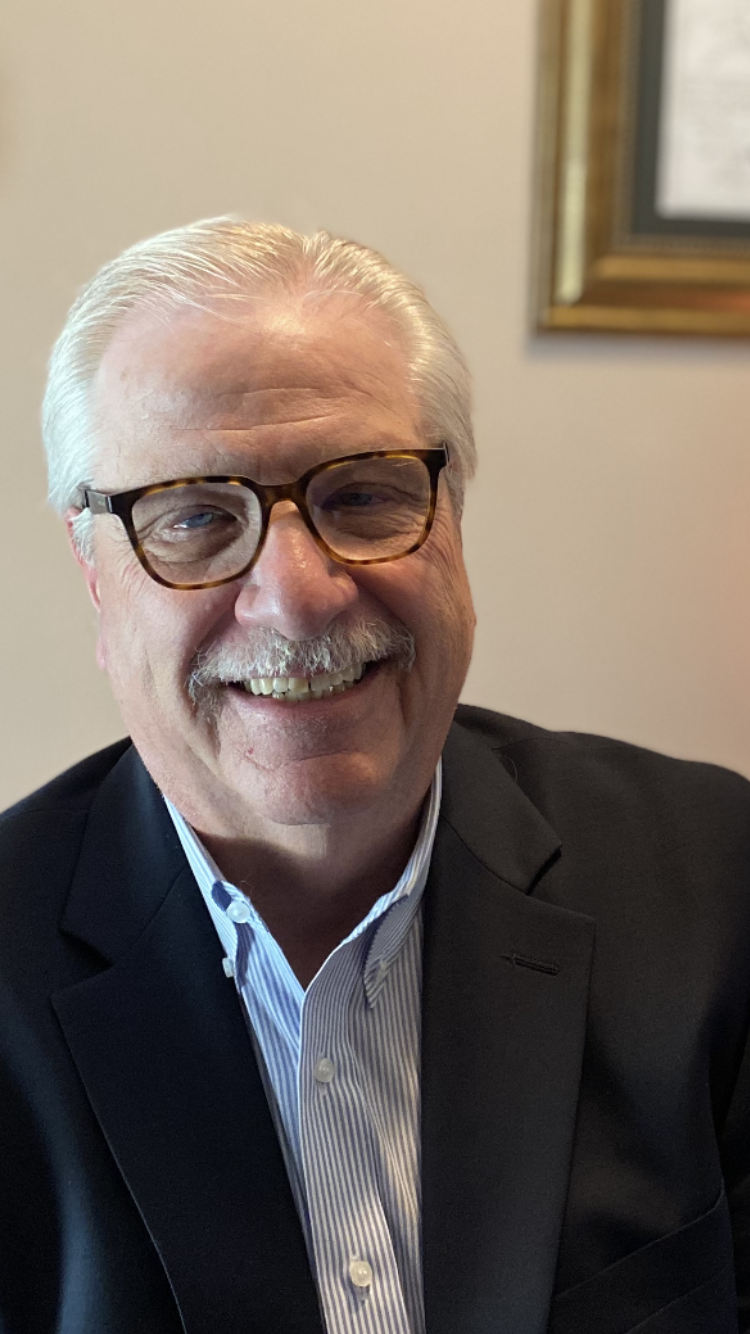 Meet Dr. Joe Walrad! Meet Dr. Joe Walrad!
Dr. Walrad earned a PhD from Wayne State University. He currently works in an independent private practice in Allen Park, Michigan with adults and children, using an emphasis on family and relationship dynamics. He also participates in a local high school substance abuse task force and has spoken to church groups on mental health issues. Dr. Walrad sees psychology as a true calling; a great opportunity to make a difference in the lives of individuals and families. After some years in this community, he finds it gratifying that clients sometimes return to discuss new challenges at another stage of life. Dr. Walrad values his membership in MPA, as he is continuously impressed by the caliber of people that he has met through this organization. He finds that MPA provides professional connectedness, which is especially important as an independent practitioner. He also appreciates the availability of legal and ethical consultation and the high quality and targeted CE programs that have helped meet licensure requirements. Over many years, he routinely looks forward to attending MPA conferences. Personally, Dr. Walrad enjoys golfing and spending time with his family and friends. What’s currently on his nightstand? “The President is Missing” by Clinton and Patterson.
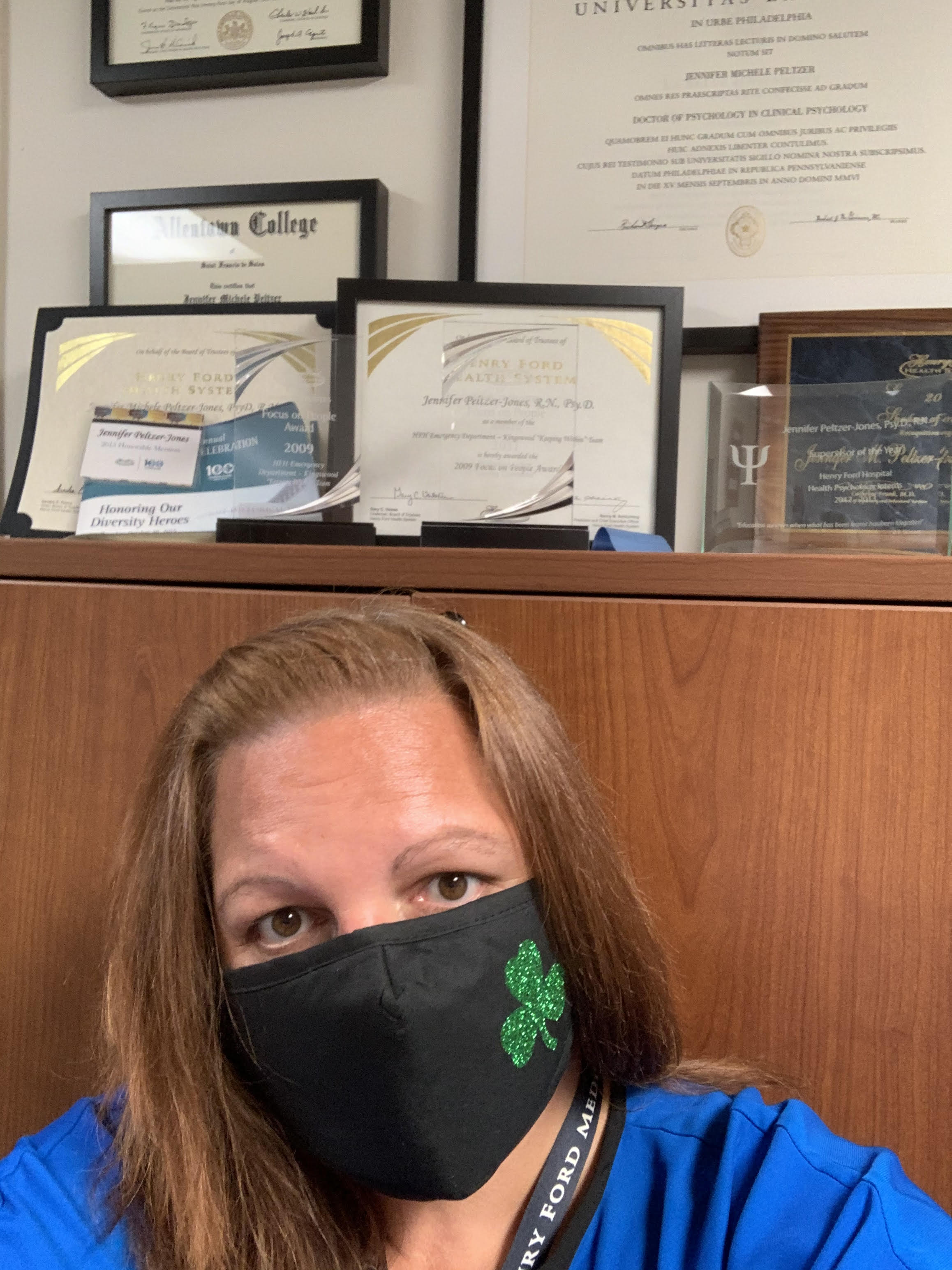 Meet Dr. Jennifer Peltzer-Jones! Meet Dr. Jennifer Peltzer-Jones!
Dr. Jennifer Peltzer-Jones earned a Bachelor’s degree in Nursing from DeSales University in 1997, an MS in Clinical Psychology from Millersville University in 1999, and a PsyD from LaSalle University in 2006. She has utilized her degrees in her current work specializing in Health Psychology. She is currently the Assistant Medical Director of Emergency Behavioral Services, overseeing the operational flow and care management for patients in psychiatric crises who present to any of the 9 Henry Ford Emergency Departments. In this role, she works closely with community partners to develop plans of care for vulnerable patients. In addition to clinical responsibilities, she is highly involved in education and is a trained facilitator for the national Schwartz Center Rounds Program – a hospital-based program that focuses on the humanity behind healthcare. Dr. Peltzer-Jones is passionate about people having access to mental health care when they need it and where they present and has worked to promote program and psychology position development in non-traditional psychology settings. She believes that psychological factors greatly influence people’s ability to understand and cope with medical illnesses and works to help patients understand their medical or psychiatric crises in order to improve their health outcomes. Dr. Peltzer-Jones’ primary areas of research include the care and management of people in psychiatric crises as well as the influence of health literacy on healthcare help seeking behaviors. Dr. Peltzer-Jones is excited by the work MPA is doing to advocate for psychologists in the state and is honored to help expand the focus on the roles Health and Integrated Psychologists play. Outside of work, Dr. Peltzer-Jones has two spoiled dogs and many hobbies. She is an avid Philadelphia sports fan (known as “Philly Jen”) and participates in multiple social and community events in the Walled Lake area, often hosting events at her backyard tiki bar. What’s on her nightstand? A Man Called Ove by Fredrik Backman. LinkedIn, Twitter
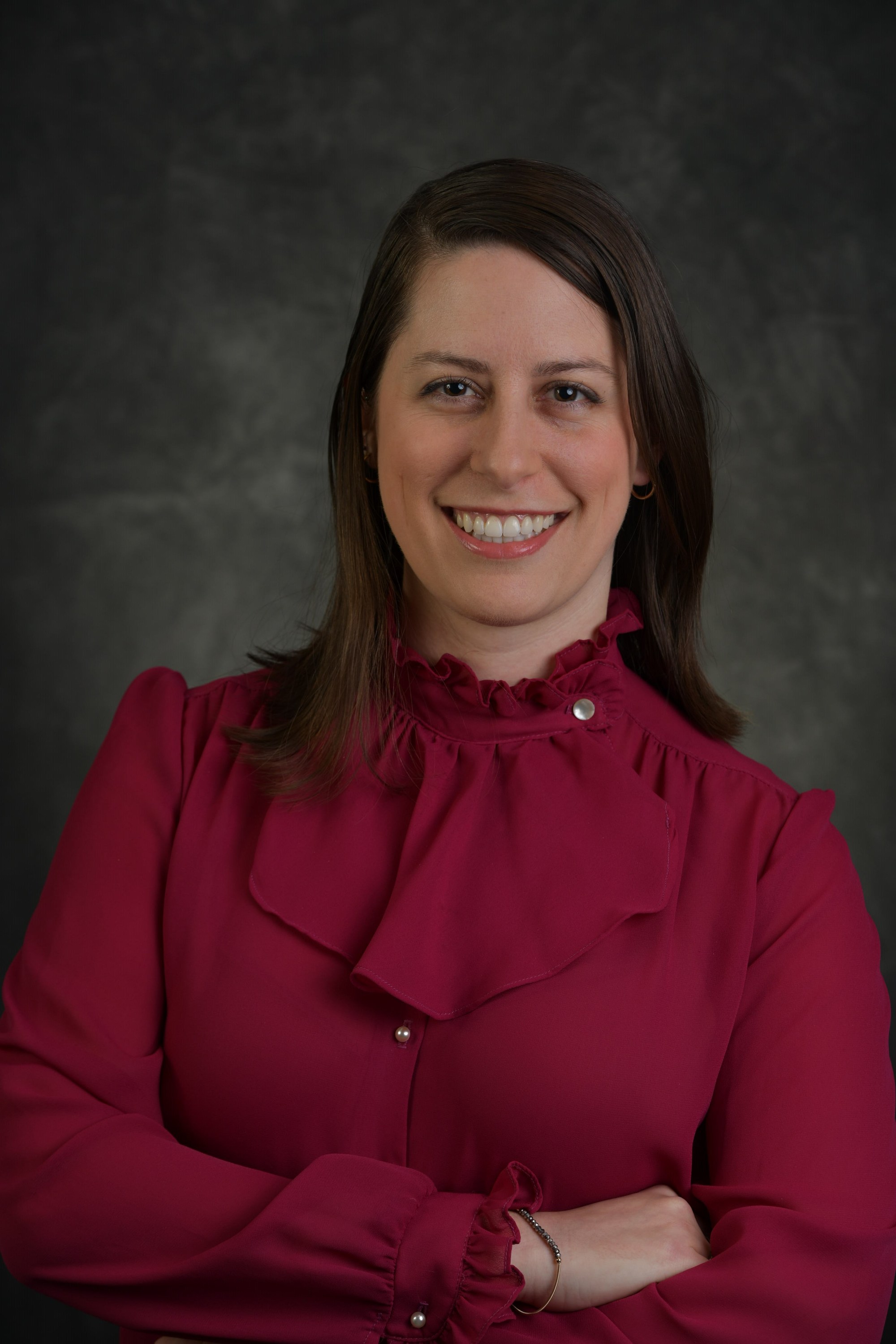 Meet Dr. Antú Segal! Meet Dr. Antú Segal!
Dr. Segal earned her doctorate degree in Clinical Psychology from Roosevelt University in Chicago, Illinois. She currently works as a Board Certified Clinical Health Psychologist at Henry Ford Health System, Transplant Institute in Detroit, Michigan. Through an integrated team approach, Dr. Segal evaluates individuals who are approaching liver transplantation, as well as individuals who want to donate kidneys. As a bicultural, bilingual clinical psychologist, she also advocates for multiculturalism within the work setting and provides services to monolingual Spanish-speaking individuals. She enjoys being a part of MPA because of the breadth of assistance provided by members of this diverse community, numerous networking opportunities and ability to effect change for psychologists at the state level with advocacy efforts. Dr. Segal previously served as the chair of the MPA Communications Committee and assumed the role of President-Elect in January 2020. Outside of work, Dr. Segal has a cat, Clementine, (hoping for a dog in the near future too!) and she enjoys being outdoors, trekking and camping. She also enjoys traveling, near and far, with her partner to learn about other cultures and new customs, as well as taste the wonderful, diverse foods of the world. Twitter, Instagram, LinkedIn
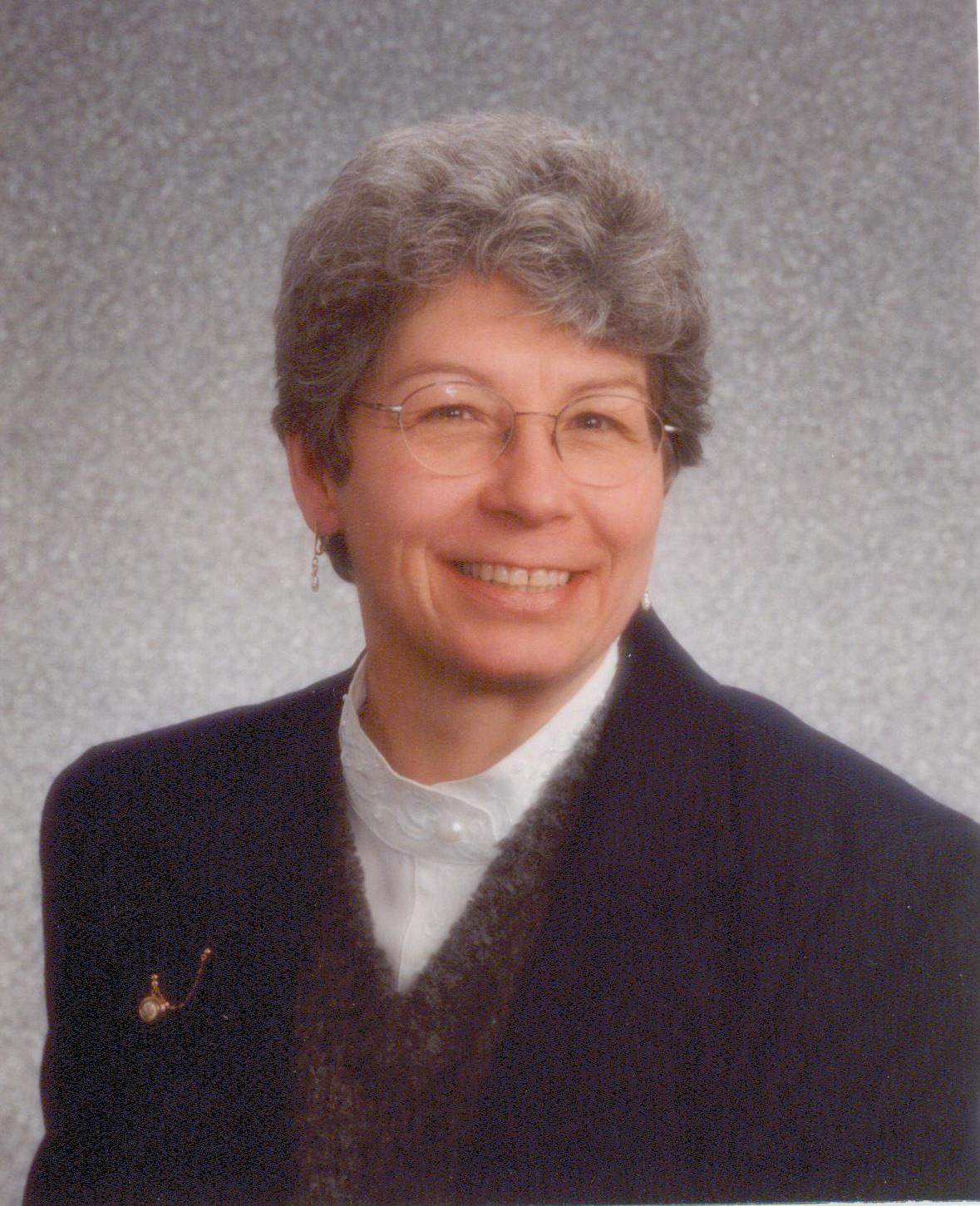 Meet Dr. Debra Smith! Meet Dr. Debra Smith!
Dr. Smith earned her PsyD from Central Michigan University in 1996 and has worked as a clinical psychologist in private practice for 15 years before retirement in June 2018. She specialized in work related to trauma, transgender issues, and mindfulness. She has also formally taught psychology throughout the state at Northern Michigan University, Michigan State University, Central Michigan University, and Lansing Community College. She teaches mindfulness courses in the community and holds salon series related to various topics in psychology. Dr. Smith is passionate about taking psychology to the community and believes that there are many ways we can help people using different venues than just our clinical office. She likes to make psychology accessible and friendly. Dr. Smith values her membership in MPA because of the relationships that she has been able to build over the years and the access to professionals for consultation when needed. Personally, Dr. Smith has been married for 15 years and has one cat. She is a 20-year Rotarian and serves as Treasurer for her local club. Her involvement in this group has taken her to Guatemala on a service project and to Portugal for an International Convention with 30,000 other Rotarians. What’s on her nightstand? “The Opposite of Hate” by Sally Kohn and “Awakening the Heart” by Jack Kornfield.
 Meet Dr. Carol (Ketl) Freedman-Doan! Meet Dr. Carol (Ketl) Freedman-Doan!
Dr. Carol (Ketl) Freedman-Doan earned a PhD in clinical psychology from the Wayne State University and is a licensed psychologist specializing in child and adolescent psychology. She has a small private practice in Livonia, MI and works at Eastern Michigan University, where she was instrumental in developing the Clinical Psychology PhD program which first launched in 2001. She served as the first Director of Clinical Training and took over as Department Head in Psychology in 2007. As Department Head, she helped launch a minor specialization in Human Sexuality, as well as a multidisciplinary undergraduate program in Neuroscience. Dr. Freedman-Doan is passionate about training students in their clinical and research work. She finds it rewarding to help a student move from insecurity about how to assess, evaluate, and treat a client to a better foothold on their skills and expertise. In her own research, she investigates the impact of parenting style on child and adolescent outcomes including anxiety, behavior problems, and cognitive development. Dr. Freedman-Doan values her membership in MPA; particularly how it keeps her knowledgeable about changes in licensing, insurance issues, and job opportunities for her students. Outside of her professional work, Dr. Freedman-Doan served as President of Temple Beth Emeth’s Board of Directors for the past three years. This synagogue has about 575 families and is the only Reform Jewish synagogue in the county. She has been married for 40 years and has two daughters, ages 32 and 27. Her older daughter currently lives in Thailand, working for the School of Nursing at Chiang Mai University, while her younger daughter sings opera and teaches private voice lessons at Saline High School and the surrounding community. She also has a cat named Kasha. What’s on her nightstand? The Hundred-Foot Journey: A Novel by Richard Morais.
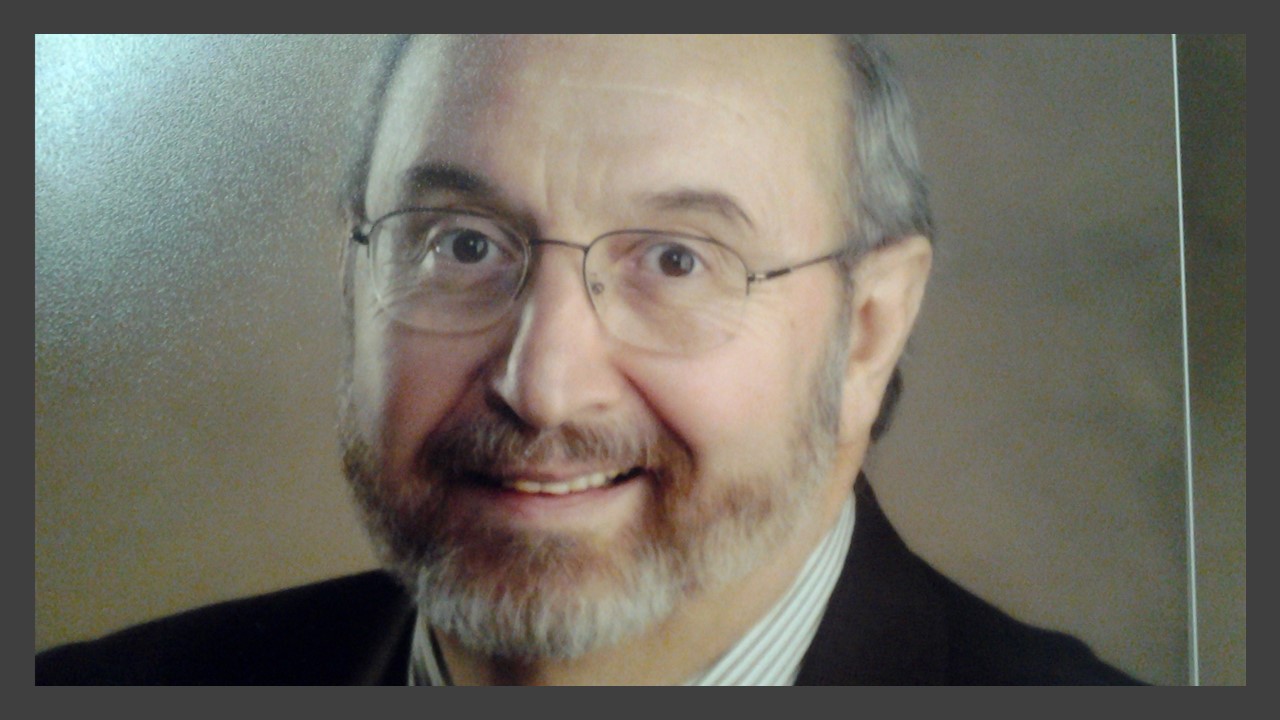 Meet Dr. Robert Funaro! Meet Dr. Robert Funaro!
Dr. Funaro earned three Master’s degrees (psychology, education, and theology) and then a doctorate in education. He is a fellow in the American Association for Marriage and Family Therapy and also works as a Certified Spiritual Director in a private practice in Ada, Michigan (www.thejourneyemerges.com; Twitter @bobfun). Dr. Funaro experiences life as a journey of emerging, evolving, and interconnecting processes and tries to integrate this ideology into his work as a therapist and spiritual guide. He focuses on helping those who are anxious, depressed, or have troubled relationships and assists those who are seeking the place of the Divine in their lives as they prepare for marriage. He also works with his wife Christine in delivering a Marriage-Preparation program, The Journey Emerges. Together, they have served over 25,000 couples. Dr. Funaro is interested in research related to the dynamics of relationship development and sustainability and has had leadership roles at several educational institutions throughout the state. Specifically, he is the retired provost of Davenport University and retired director of the Western Michigan University Cooley Law School. He is also the former interim dean of students at the University of Michigan – Dearborn. Dr. Funaro views the best part of his involvement with MPA as the collegiality, professionalism, and friendships that he has developed through the association. Personally, Dr. Funaro has been married for almost 40 years and has four children and six grandchildren. He is actively involved in his parish, works as a Hospice Volunteer for Elara/Great Lakes Caring, and, as an active member of the Associates of the Congregation of St. Joseph for the last 40+ years. What’s on his nightstand? Various works of Sr. Thea Bowman, Thomas Merton; works on Anger; and Scripture.
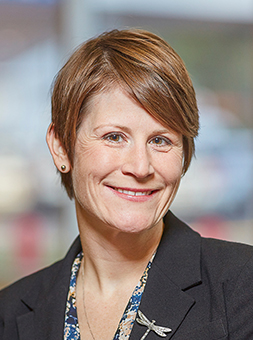 Meet Dr. Amanda Johnson! Meet Dr. Amanda Johnson!
Dr. Johnson earned her Ph.D. from Wayne State University in 2007 and board certification in neuropsychology in 2012. She works as a clinical neuropsychologist at UP Health System Marquette. She also serves as adjunct faculty through the Michigan State University Medical School Rural Program. Though her work is primarily clinical, she has recently re-engaged in research, examining the utility of the Lichtenberg Financial Decision Rating Scale. Dr. Johnson serves on the membership committee of MPA and values her MPA membership because it allows her to advocate for professional psychologists on a state level. Outside of work, Dr. Johnson is celebrating 15 years of marriage and has three children. She is an avid runner and involved in theater communities in Marquette. She is passionate about the city of Marquette and enjoys taking in the beauty of the Upper Peninsula. What’s on her nightstand? “Hamilton.”
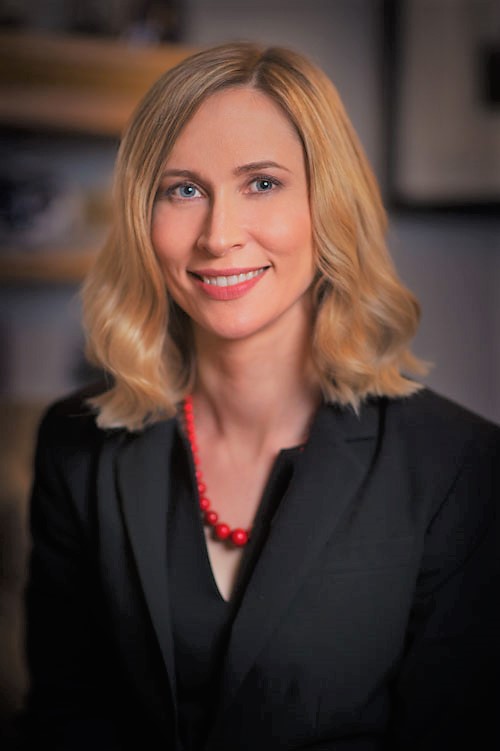 Meet Dr. Elizabeth Imbesi! Meet Dr. Elizabeth Imbesi!
Dr. Elizabeth Imbesi earned her Ph.D. from the University at Buffalo and is a licensed psychologist with board certification in clinical health psychology. She is currently the supervisor of psychology services at NeuroRestorative in Ann Arbor. She has been involved in education, primarily through supervision of internship & practicum students at the Ann Arbor/Toledo and Battle Creek VAs, through staff trainings about mental wellness and patient interaction at her current position, and as an applicant mentor through the American Board of Clinical Health Psychology. Her research interests include chronic pain, TBI & behavioral sleep medicine; she also is interested in ethics and institutional dynamics. Dr. Imbesi is passionate about whole-health wellness due to the increasingly fragmented medical system that often too sharply delineates physical from emotional health. She is also passionate about art and creativity. Outside of work, Dr. Imbesi enjoys spending time with her family and two pet cats in southeast Michigan. Her hobbies include exercise (running, weight lifting, karate), creative writing, and playing the violin. She is involved in the community primarily through psychology-oriented organizations including MPA, APA, ABCHP, and the Washtenaw Psychology Society. She feels that the best part of being a member of MPA is the connections she has made with other psychologists & the opportunity to get differing perspectives on clinical or ethical concerns. What’s on her nightstand? Professionally, she is reading Why We Sleep by Matthew Walker, and for personal enjoyment she is reading The White Album deluxe edition book by Paul McCartney and other contributing authors.
 Meet Dr. Lyndsay Volpe-Bertram! Meet Dr. Lyndsay Volpe-Bertram!
Dr. Volpe-Bertram earned her Psy.D. from the Chicago School of Professional Psychology and is board certified in Clinical Psychology through the American Board of Professional Psychology. Dr. Volpe-Bertram works as a clinical psychologist at Spectrum Health in Grand Rapids. She treats a wide variety of ages and presenting concerns but specializes in the use of evidence based treatment, including Cognitive Processing Therapy, for treatment of trauma symptoms. Dr. Volpe-Bertram particularly enjoys working with victims of trauma, as the healing and resiliency that she witnesses in these individuals is “nothing short of amazing”. Dr. Volpe-Bertram values her membership in MPA because of the access that it provides to a larger group of educated psychologists in the state whom she can rely on for consultation. Personally, Dr. Volpe-Bertram is married to a neuropsychologist and has two young children and two orange cats. She enjoys spending time with her family and friends in the Grand Rapids area and she loves to travel. What’s on her nightstand? As she is just returning to work after maternity leave, “The Very Hungry Caterpillar” and “Pete the Cat”.
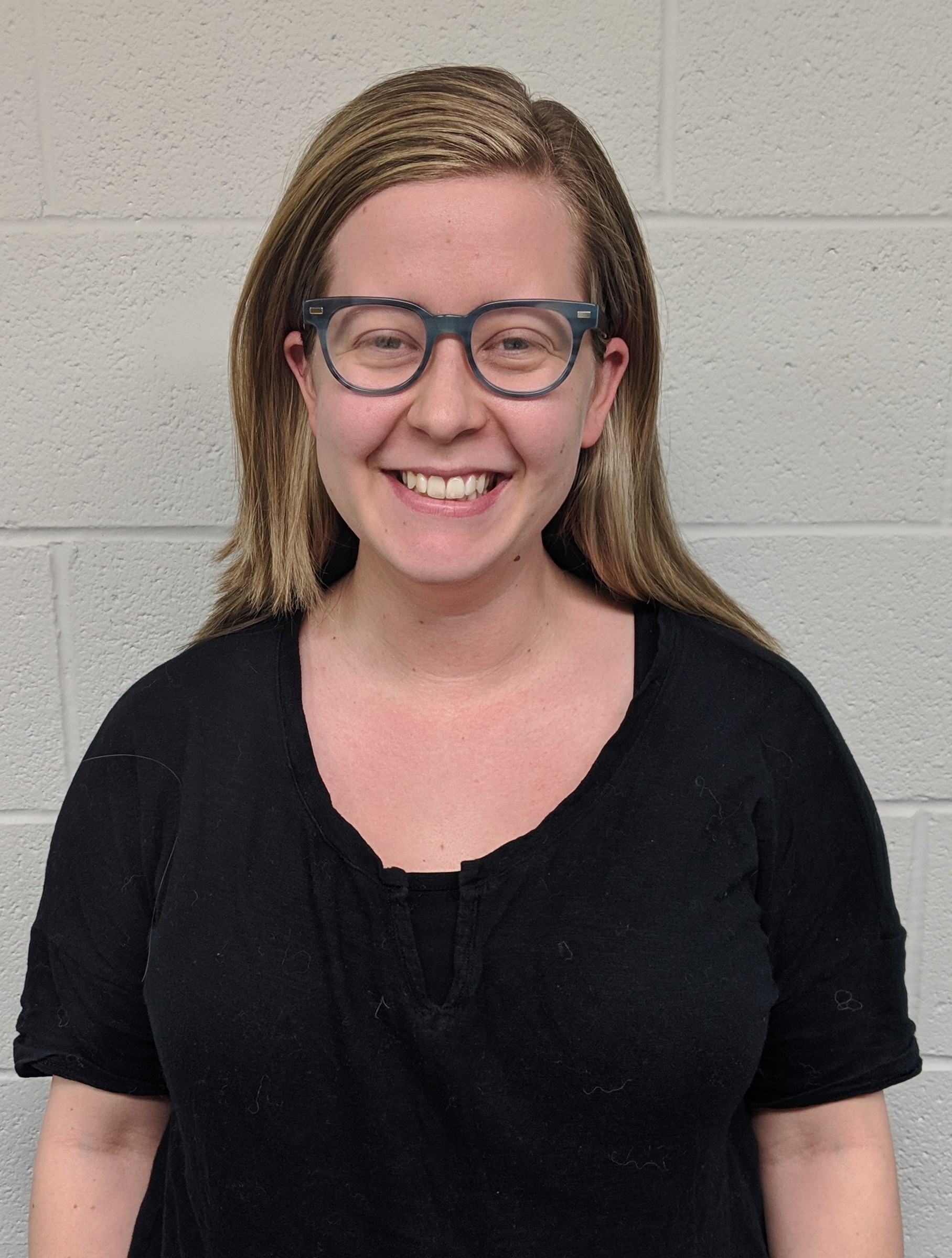 Meet Megan Pejsa-Reitz, MS! Meet Megan Pejsa-Reitz, MS!
Megan is a graduate student enrolled in the Clinical Psychology Program at Eastern Michigan University (EMU). She earned her Master’s of Science degree from EMU and is currently on track to complete her doctorate. Her clinical area of special interest is in eating disorders, which builds off her passion for promoting physical activity and healthy lifestyles to reduce medical complications associated with obesity. She currently has a clinical placement at Henry Ford Health System, where she conducts assessments for patients seeking bariatric surgery. She provides group therapy at EMU that incorporates psychoeducation to assist with weight loss as well as behavioral treatment to assist in implementing healthy behavioral changes. Megan also serves as the graduate student representative to the Michigan Psychological Association. She values being a member of MPA because of the relationships that she has built with other MPA members, and supporting the growth and development of student members. Personally, Megan has been married to her high school sweetheart for three years and has one cat. Her hobbies include board game nights, antique shopping, kayaking, and cooking.
 Meet Dr. Joy Ensor! Meet Dr. Joy Ensor!
Dr. Ensor earned her Ph.D. from the University of Michigan and works as a clinical psychologist at Ann Arbor Center for the Family (www.annarborcenter.com), specializing in family systems and collaborative problem solving approaches. Dr. Ensor uses a social justice lens to examine the politics and economics of caring for the most vulnerable among us. She also is a board member of Hawthorn Center Association (a charitable organization benefiting Hawthorn Center patients) and the is the president elect of the Michigan Psychological Association. She enjoys being a part of MPA because she views its members as “a dedicated, brilliant, and values-driven group of people who work well together around a common purpose”. Outside of work, Dr. Ensor enjoys classical piano, practicing T’ai Chi, service to her synagogue, and spending time with her husband Doug (a fellow psychologist) and her two daughters. What’s on her nightstand? “A Gentleman in Moscow” by Amor Towles.
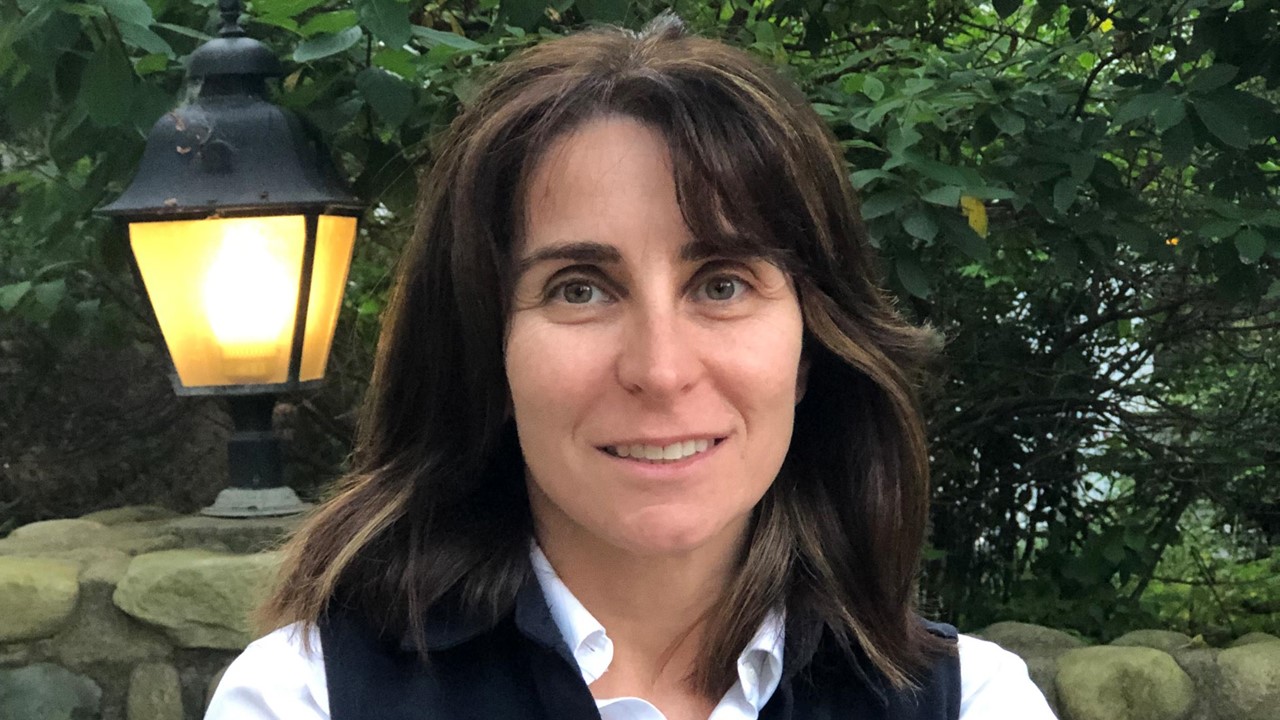 Meet Dr. Elissa H. Patterson! Meet Dr. Elissa H. Patterson!
Dr. Elissa (Lissa) Patterson earned a Ph.D. in biopsychology from the University of Chicago and a Certificate of Clinical Re-specialization from William James College (formerly the Massachusetts School of Professional Psychology). She currently works as a Clinical Assistant Professor of psychiatry at the University of Michigan, where she specializes in health psychology (https://medicine.umich.edu/dept/psychiatry/elissa-patterson-phd; https://twitter.com/epatters2). Prior to her life as a psychologist, she studied English literature at Colgate University, teaching at Sierra Nevada College in Lake Tahoe, and biology at the Harvard University Extension School. She is passionate about improving the well-being of individuals and society through education, clinical practice, and systemic growth. She enjoys teaching medical students, psychology graduate students, and psychiatry residents about the applications of psychological principles in medicine--particularly the benefits of re-integrating the mind and the body.
Dr. Patterson works on the Consultation Liaison Service at University Hospital in Ann Arbor, where she sees medical/surgical patients who experience psychological factors impeding their medical progress. In partnership with the department of neurology, she helped develop a multi-disciplinary clinic for patients with conversion disorder (psychogenic non-epileptic seizures) using a published treatment that draws on elements from multiple schools of thought including mindfulness, stress management, CBT, psychodynamic psychotherapy, and principles of influence.
This summer, Dr. Patterson took on a new role as Professional Development Coach with the Michigan Medicine Office of Clinical Affairs. In this position, she helps faculty members evaluate and develop their communication skills, given the positive relationship between communication and patient safety. She is a member of the Michigan Medicine Pain Committee, and she is passionate about the importance of spreading understanding about biopsychosocial approaches to pain perception and management as a tool to fight the opioid epidemic. As president of MPA, she hopes to increase public awareness of the many ways that psychologists contribute to generating healthy communities in all senses of the word “healthy.”
Regarding the importance of MPA membership in her life, Dr. Patterson states “MPA membership grounds me in the collective wisdom of a long-standing organization that monitors and influences the practice of psychology in Michigan. I love having access to tailor-made continuing education and networking with other psychologists through MPA-facilitated peer consultation groups. In addition to professional enrichment on a personal level, for me, MPA is an outlet through which I can connect with like-minded colleagues as we all contribute to pro-social initiatives that improve lives by increasing access to psychological tools.”
Dr. Patterson lives with her partner Gabriel Corfas, PhD, who is a neuroscientist at Michigan Medicine and the director of the Kresge Hearing Research Institute. She is a dog-lover and also enjoys gardening, jogging, sailing, home renovation, skiing, reading, socializing, and exploring new places and cultures. She speaks French, Spanish, Armenian, some Russian and some Portuguese. What’s on Dr. Patterson’s nightstand? Kitchen Table Wisdom by Rachel Naomi Remen and In Shock: My Journey from Death to Recovery and the Redemptive Power of Hope by Rana Awdish.
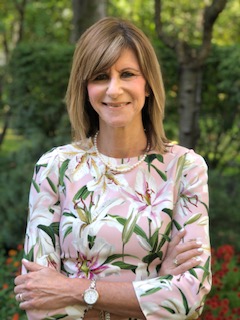
Linda Sircus, Ph.D.
If there is one thing Linda Sircus, Ph.D. believes in, it is talking about mental health care.
Not only is this core belief evident in her clinical work, but she has a chance to practice it regularly on her TV show “Managing the Problems of Daily Living.”
“Normalizing the conversation for mental health care,” Dr. Sircus explains, “leads to optimizing and stabilizing relationships and people's accomplishments both personally and professionally.”
Her TV show, which she has hosted on Bloomfield Community Television since 2016, has been one of her passions. “I came up with the idea to do a television show after watching local cable and seeing the benefit of community programming,” she says. “I wanted to do the show to address a variety concerns including when someone is ill or loses a child or has a friend or family member on drugs or alcohol.”
On the show Dr. Sircus talks to experts, which she says gives her and her audience new ideas about what to say or do in difficult situations. In addition, her guests can point out what resources and treatments are available. But by talking about mental health issues, she sees the conversations as destigmatizing mental illness.
Some of the experts she’s had on her show include Bessel Van Der Kolk who discussed trauma research and treatment; David Burns who talked about his self-help book “ Feeling Great;” Terrence Keane, the national director of the National PTSD Center, who discussed the evolution of trauma research and treatment interventions; Marisa Franco, the author of “Platonic,” who talked about building friendships later in life; and Michael Ryan, Psy.D., from Henry Ford Hospital, who led a discussion on health psychology issues that are present for patients with medical illnesses and the variety of treatment interventions and support services available for them and their family members.
An episode of her show won the Philo T. Farnsworth Award for Excellence in Community Programming in 2017. The episode, titled “Managing the Problems of Daily
Living LGBT Issues,” featured Joe Kort Ph.D., an LGBTQ-informed psychotherapist, and Nicole Eisenberg, national board member of GLAAD. Proud of this show, Dr. Sircus says, “The show was about LGBTQ youth, coming out, and how to support friends or family members who are gay. I think this was a good show because it is important to normalize differences, increase awareness for struggles community members are managing, and inform people what we can do to help LGBTQ youth and ourselves.”
She learned the importance of helping people talk about and accept psychotherapy when she worked at the Milan Federal Correctional Institution with inmates. “I also learned at Milan Prison the benefits of behavior modification in motivating prisoners to complete their GED and move forward to taking college courses,” she says.
Practicing in Sircus Psychological Services in Franklin, Michigan, Dr. Sircus treats individuals, couples and families for depression, anxiety and relationship issues. She has a special interest in cognitive behavior therapy of anxiety disorders including phobias and obsessive-compulsive disorder.
A clinician for 36 years, she didn’t know until she was almost finished with her undergraduate degree at the University of Michigan that she wanted to be a psychologist. She attended college with the intention of becoming a pediatrician, but eventually, she says, the field of psychology “won over my heart.” That happened after taking a psychopathology class her junior year of college. “That did it,” she says about changing her mind about her major, “I was all in.” Following that psychopathology class, she continued taking more psychology courses, learning about behavior modification and the science behind mental health. She found that it was important to gain knowledge from behavioral outcome studies comparing treatment interventions with a wait list control and utilizing follow up measures to determine what strategies are most efficacious for managing particular disorders.
After graduating from the University of Michigan with honors, she went on to Nova Southeastern University for her M.S. and Ph.D. – both in Clinical Psychology.
Following her earning a Ph.D., she did a post-doctoral fellowship at Behavior Associates in Boston and an internship at the Boston Veterans Administration Medical Center. After returning to Michigan, she spent 29 years at Psychological Institutes of Michigan in Franklin, where she began specializing in treating people for depression, anxiety and relationship problems. She established Sircus Psychological Services clinic during the COVID pandemic. “When my partner Fred Marshall Psychological Institutes of Michigan closed our office down during Covid,” she explains, “I thought it was time to start my own practice as part of my professional evolution.”
Married to Scott Sircus, M.D., Linda and her husband have a son, Eric, who works in information technology and a daughter, Hilary, who is pursuing her Psy.D. in clinical psychology from Nova Southeastern University. The other member of the Sircus family is Lucy, a 16-year old Shih Tzu.
Among her hobbies, Linda Sircus lists golf, riding a Peloton, taking long power walks, cooking and playing the guitar. Regarding music she says: “Guitar playing is a source of joy and creativity and it’s mood elevating.”
She has long been involved in the community as a past board member of Temple Beth El, a co-founder of the Circle of Friends for the Child Abuse and Neglect Council of Oakland County, and Vice President of Michigan State University’s Hillel, the Jewish student center.
Dr. Sircus was at Wayne State University from 2011 to 2017 teaching various psychology courses, including abnormal psychology, personality, social psychology, psychology of gender and psychology of everyday living to undergraduates. In 2010, she was a lecturer at the University of Michigan Dearborn teaching abnormal psychology.
Given all of her activities, she still finds time to read. Recent books she’s read include “Option B: Facing Adversity, Building Resilience, and Finding Joy” by Sheryl Sandberg, “Freeing Yourself from the Narcissist in Your Life” by Linda Martinez-Lewi, and “Maybe You Should Talk To Someone” by Lori Gottlieb.
She loved Gottlieb’s book for several reasons. “I loved how insight from her work with clients and her own therapy informed her work with them and her own personal growth. She also stressed the importance of self-reflection and conversation with colleagues to facilitate that process.”
Dr. Sircus, like Lori Gottlieb, gets that herself from her membership in MPA. “I enjoy the opportunity to network and learn from my colleagues,” she says. “But I also appreciate and support lobbying on behalf of psychologists and increasing awareness of mental wellness programming for the greater community.”
But one thing Linda Sircus hasn’t done yet is write a book. “I always think about writing a book about what I have learned from my life experiences and from my interviews with clients and guests on my show. I find that the messages about self-empowerment and resilience have become increasingly important throughout my life and I’d like to write about that.”
To view previous episodes of the show Managing the Problems of Daily Living visit Dr. Sircus’ website at https://www.drlindasircus.com/pagetv
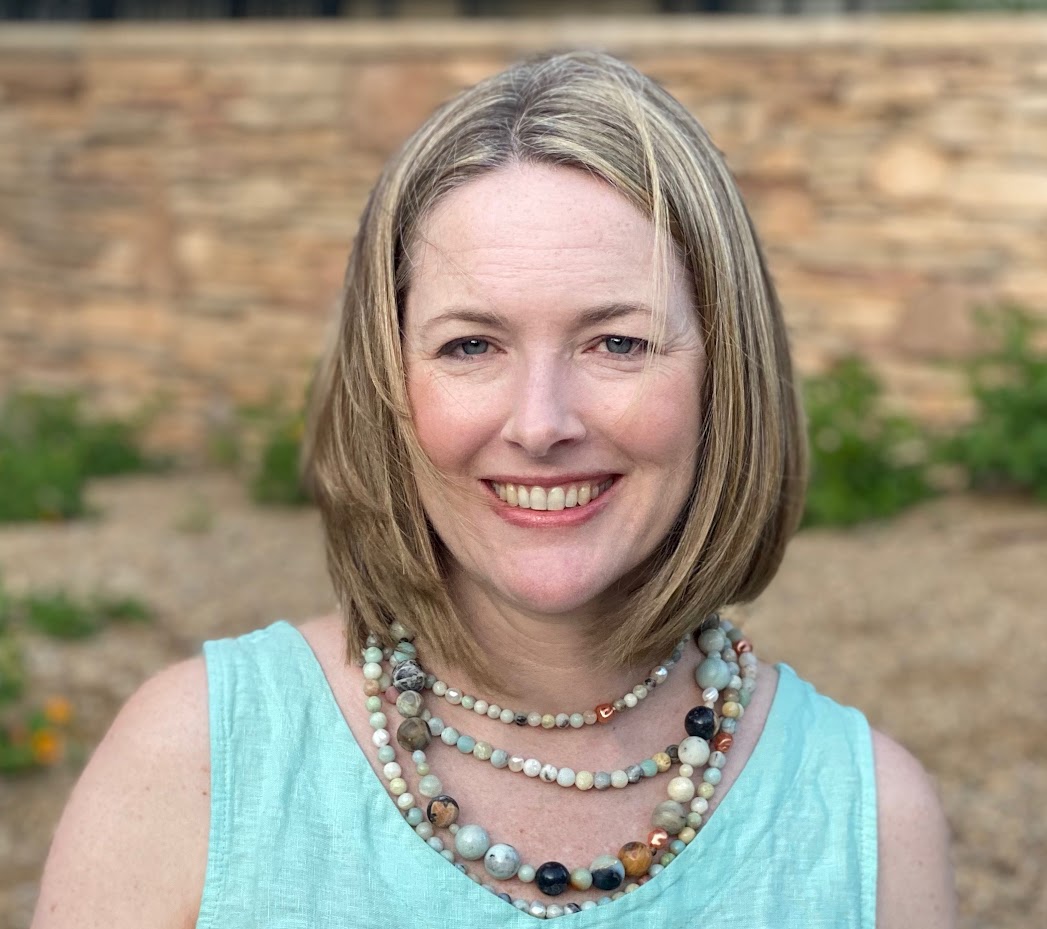 Meet Dr. Rebecca Eldredge! Meet Dr. Rebecca Eldredge!
In her busy schedule, which includes clinical work with clients, speeches and workshops, as well as her weekly email list and blogs on her website, Dr. Rebecca Eldredge has a message she consistently shares:
To truly create a world that is more compassionate and just, we must demystify compassion for others and destigmatize compassion for oneself. Wellbeing is integral to effective and sustainable change-making; and attuning and responding to your internal cues and sensations (even those that are really unwelcome and unpleasant) can serve as a guide to what you need to feel your best. You matter. You make a difference.
“Self-compassion and wellbeing is not just a luxury,” Dr. Eldredge proclaims. “Instead, self-care is an urgent necessity for those shouldering the heaviest loads of caring for others in a world in which injustice is still prevalent.”
Getting to know Dr. Eldredge, you learn that these themes motivate her. They provide the passion for spreading the plea of the “urgency of self-compassion and wellbeing for effective and sustainable changemaking, especially for BIPOC women and people from historically marginalized and underappreciated identities.”
That, she admits, is a great deal to work on.
“I care deeply about challenging the false dichotomy of a choice between making an impact or taking care of one’s own wellbeing,” she says, “because I have witnessed the steep costs to both the individuals and the people and causes they are supporting when people who care so deeply sacrifice their own needs to respond to the needs around them.”
Throughout her speeches, workshops and clinical work, she emphasizes the role of the nervous system as well as the need for people to be able to have difficult conversations in ways that are safe and productive “so that we can move toward effective and sustainable changes that create compassionate and just spaces that are inclusive and equitable for all people.”
In graduate school, Rebecca Eldredge knew she wanted to work with people who were not exactly like her, and she realized she wanted to integrate efforts toward social justice in her work. “When choosing a doctoral program, I selected places that had a multicultural strength and emphasis,” she recalls. “This was influenced by earlier experiences of travel to volunteer, study, and live in different environments alongside people from different backgrounds. The more I got to know and form authentic connections with people of different cultural backgrounds and experiences, the more I wanted to be aware, sensitive, and responsive to the experiences and needs of others. My graduate studies further reinforced and expanded how impactful this is and the benefits of developing ongoing cultural competence to be most effective with anyone I work with.”
Rebecca grew up in Northern Michigan and graduated with her B.A. in Psychology from Alma College. After working a couple years, including one as a live-in houseparent for a boys home in inner-city Detroit, she moved to Carbondale, Illinois to complete her Ph.D. work in Counseling Psychology at Southern Illinois University - Carbondale.
These days she has her own business called Feel Deeply, Live Completely. She maintains her licensure in both Michigan and Texas. She also hosts virtual self-compassion and social justice roundtables, speaks in front of groups and helps facilitate programs and trainings for other organizations. She is also a Step into Your Moxie® Certified Facilitator.
Her latest project is to start a collective called Chrysalis.
“Chrysalis is a group that I've had a vision for over a few years,” she explains. “It is guided and inspired by the work I'd done with multiple clients in other settings and formats. Many of the Black women and women of color that I work with pour out of themselves for others and take up a smaller and smaller space within their own lives. They often give (and are asked or required to give) so much of themselves, at great cost to their own well-being, and societal messages and pressures often undermine their value and worth.”
Chrysalis, then, is designed as a space for a small intimate group of these women to come together for nine months with retreats, workshops, community space and individual support and receive what they need for their own wellbeing. “In this way they can be poured into with support, coaching, tools and presence together that mirrors back their own brilliance. Chrysalis is a space in which they are nourished, nurtured and empowered to transform into the fullness of their identity so that they can follow their own calling as well as continue to show up in the world in the ways they feel good about – without sacrificing their health and wellbeing.”
Rebecca is married and has a six-year-old daughter – “Who I adore.” She is close to her extended family, which includes her grandparents who are 99 and 98 years of age. Her hobbies are walking and hiking, reading, listening to music, traveling – currently she is on a streak of watching K-dramas.
Why K-dramas?
“That’s a good question,” she says in response. “The ones I've seen so far are funny and sweet. They are somewhat light but have interesting character and relationship arcs. And I learn more about another culture. They're a nice way to unwind at the end of the day because they are easy on the nervous system, and they provide a break from many of the realities I work in and deal with so much of my time.”
Among the books she’s recently read is “Commonwealth: A Novel” by Ann Patchett. She enjoyed Patchett’s best-selling book because of “the depth of the characters and the gradual unraveling of the story of their multiple and intersectional relationships and emotional worlds.”
The book “Final Gifts: Understanding the Special Awareness, Needs, and Communications of the Dying” is still on her bedside table when Dr. Eldredge is not carrying it around with her. “It was recommended after a significant family loss. I'm still working up to reading it.”
Although her practice is currently in the Traverse City area, she maintains her license from her previous residence in Houston, Texas as well.
“When I moved to Michigan in 2012, I was still working remotely most of the time and traveling back and forth regularly, but since having a child and experiencing the pandemic, the travel back and forth has decreased significantly. Fortunately, we still have both family and friends there, so it gives us opportunities to travel back. I'm fortunate it works out that way. The main challenge is having to track the laws and license requirements (and fees) of multiple states.”
As an MPA member, she says that she likes being a part of a community “that shares resources, promotes ongoing education and growth, and advocates for mental health access and support.” She also finds it important to be part of the wider community: “My involvement in the community is generally through personal relationships, the school system and background efforts to support organizations doing amazing work such as addressing homelessness and diversity and inclusion.”
She writes a weekly blog, which is posted on her website and LinkedIn. Those blogs often reflect her own experiences and offer encouragement of wellbeing within social justice and changemaking efforts. She signs off her blogs with this mantra, which helps demonstrate who she is: “You matter. You make a difference. I'm so thankful you're here.”
You can read her blogs on her website at https://rebeccaephd.com/ or, for a more personalized version, join her weekly “thinking of you” email list. You can join and access free resources for 5 Ways to Speak Up at https://rebeccaephd.com/5ways or complete a fun madlibs to receive your own personalized peaceful place visualization at https://rebeccaephd.com/innercalm.
 Charmeka Newton, Ph.D., Charmeka Newton, Ph.D.,
Charmeka Newton, Ph.D., specializes in working with clients who are dealing with race-based issues and racialized trauma. In fact, her private practice in Lansing, called Legacy Mental Health Services, is geared toward culturally adapted therapy, which she provides to clients of all racial, ethnic and cultural backgrounds.
Why did she choose the name “Legacy” for her private business?
Her response says a lot about who she is as a person and a therapist: “The word legacy by definition means ‘something of value transmitted by or received from an ancestor or predecessor or from the past.’ As I reflected upon my life, I noticed people who built up a legacy for me; a promise and hope.”
The people who had the greatest influence on her life were her grandparents. “They established a legacy for me,” she says. “Their legacy was one of care, compassion and goodwill to mankind. I saw kindness, love, patience, meekness, faithfulness and gentleness from them, and these are the qualities I bring into therapeutic relationships. The word legacy was chosen because of my grandparents.”
Born and raised in Oak Park, Michigan, Charmeka Newton graduated from Oak Park High School and did her undergraduate work at the University of Michigan, where she majored in Psychology and Communications. She attended Western Michigan University for her graduate work. While there and while working toward her Ph.D., she was influenced by her professors.
“During my doctorate level studies, I was trained by the late Dr. Lonnie Duncan and Dr. Joseph Morris,” she says. “Through my studies at WMU I read Black scholars like W.E.B. Dubois, Dr. Joseph White as well as Dr. Thomas A. Parham. They all influenced my clinicial training, research and worldview.”
That worldview was reflected after graduation and when considering her work with clients. “Seeing the numerous instances of social injustice inflicted on people of color is what motivated me,” she explains. “I saw a need for healing in communities of colors and that is what inspired me. I hope the work I do can stop some of the hurt that people of color face due to racism.”
Shortly after becoming a Licensed Psychologist, she decided to open her own private practice. And a further decision was to focus her practice on culturally adapted therapy.
“I opened my practice in January, 2014, and decided that.I would create Legacy as a place that would be culturally sensitive for diverse population. I wanted Legacy to be different, because I’ve worked in places that did not honor people’s identities. Legacy would be a space that respects diversity and incorporates it into the treatment processes.”
Dr. Newton lives in Grand Rapids and has been married for almost four years to Anthony. They have a son, Greyson, who is seven months old and a “bonus daughter” in her stepdaughter Tyonna, who is fifteen. Dr. Newton says she enjoys spending time with both her immediate and extended family because “they provide me with a sense of grounding.” Her family also includes Joey, a four-year-old mini golden doodle who is extremely playful.
Her hobbies include traveling to tropical places and watching NBA basketball games. Her favorite team is the Los Angeles Lakers. “I love the LA Lakers,” she announces. “Lebron James is my favorite player and I have followed him his entire career. His skills level makes him one of the top players to ever play the game and that’s why I love his team.”
Although she has visited such non-tropical places as Paris and London, her goal is to do more international traveling in the years to come.
In addition to her private practice, Dr. Newton currently serves as a member of the Michigan Board of Psychology – a position that is appointed by the governor of the State of Michigan. She comments that, “As a board member I help uphold the ethical and published code of practices for clinicians in the state.” She also is a proud member of Sigma Gamma Rho Sorority, Inc., a historically Black sorority. As a member of Sigma Gamma Rho Sorority, she is involved in planning programs geared toward meeting the social, emotional, and physical needs of underserved children, adolescents and families.
Dr. Newton is also an MPA member and she says that the best part of belong to MPA is the opportunity to network and connect with other professional in the state and the opportunities for professional development trainings. Furthermore, she is an assistant professor for University of North Dakota on-line remote counseling program. In this position she teaches courses connected to counseling methods, ethics, counseling theories and multiculturalism.
Currently, she is reading the book “My Grandmother’s Hands” by Resmaa Menakem. About her reading, she says that “My reading is usually connected to the work that I do, so I have read a lot of books this year that center around racial healing and social justice.” But she also has a book of her own coming out soon. She is the co-author of the book “Black Lives Are Beautiful: 50 Tools to Heal from Trauma and Promote Positive Racial Identity.” It is being published by Routledge.
About this new book, her first, she says: “We know that race-based traumas are detrimental to the psychological wellbeing of African Americans. The purpose of this workbook is to help African Americans develop a positive racial identity and mitigate the psychological effects of racialized trauma in daily life. Accordingly, this workbook engages readers in five central aspects of racial identity development and trauma: 1) self-esteem, 2) racial healing, 3) resilience, 4) empowerment, and 5) community. As readers explore each part of this workbook, they will develop tools to overcome the mental injuries that occur from living in a racialized society.”
Recently, she was also the co-author of the peer-reviewed article “Culturally Adapted Cognitive Behavior Therapy as a Model to Address Internalized Racism Among African American Clients,” which was published in the Journal of Mental Health Counseling.
To learn more about the trainings and webinars she offers, go to https://www.kalamazoocbt.com/webinars. And to check out her private practice website, find it at http://www.legacyhealthcenter.com/
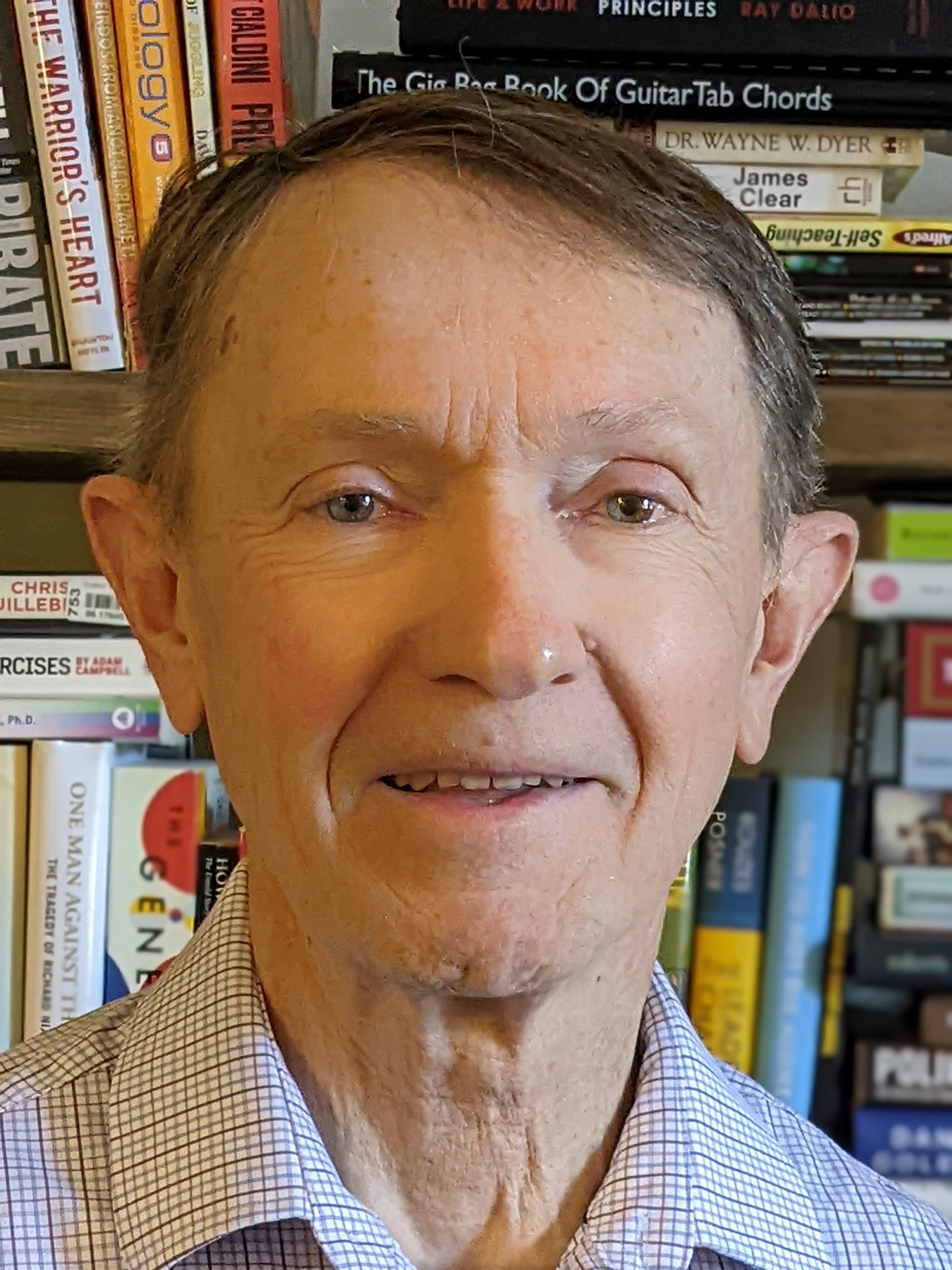
Andrew P. Kronk, Ph.D
After working 30 years as a school psychologist and as a clinical psychologist in private practice, Andrew P. Kronk, Ph.D. retired in 2014.
In his career as a school psychologist, he first worked in Dowagiac, followed by Wayne County and finished working in Southgate at Beacon Day Treatment, a center-based program for emotionally impaired children from kindergarten through high school.
Commenting on his career as a school psychologist, Dr. Kronk says that “School psychology was enjoyable because I was able to work with a team of professionals (teachers, social workers and administrators) as well as parents in a collaborative manner to create plans for students.” He particularly enjoyed his years with the Beacon Day Treatment center as the position did not require that the psychologist provide a “gatekeeping” function focusing on matching students to programs. “Instead,” he says, “I was free to focus on consultation with the staff, which included giving presentations on child psychology.”
He maintained a private practice in Allen Park, where he worked with a wide variety of clients and specialized in child and family therapy.
Prior to his first school position in Dowagiac, he earned his B.A. degree at the University of Notre Dame. Then, he attended Western Michigan University for his M.A., and obtained his Ph.D. at the University of Michigan.
Andrew Kronk grew up on Detroit’s west side near Michigan Avenue and Livernois until he was seven. His family, including three younger siblings, then moved to Dearborn, where his family lived for the rest of his childhood and adolescence. He attended the University of Detroit High School.
His parents owned a small lumber yard and by the time he was 13, he was working there almost every Saturday. Looking back on his work in the lumber yard, he says that the experience was valuable. “Being able to work with all kinds of customers and tradespeople, and learning about the products we sold is something I value,” he says. “I still like to have tools on hand, and I always keep a small supply of lumber in my garage.”
He and his wife Ann have been married for nearly 47 years and they have three children – all in their 40s. About his children, Andy says that he is proud that all his children have a bachelor’s degree – “And two have an MBA.” The family presently includes a five-year-old Maltese poodle. “We love the dog, but I would caution everyone not to believe what you may hear about this breed not barking,” he remarks. He and Ann enjoy traveling and keeping up with family and friends.
Since his retirement, they now have more time to think about their traveling plans. Among their planned travel destinations are a trip to Washington, D.C. to see the sights and to visit with their son who lives close to the nation’s capital. He and Ann are also considering an Alaskan cruise and a European river cruise. Before the pandemic derailed their travel plans, they had hoped to cruise the British Isles.
Andy says that several factors entered into his decision to retire. “Foremost, of course, was being able to afford it. I also thought that age 67 was a good time to retire and Ann had already retired.” It was also important for them to plan activities – like traveling – for themselves. “Finally,” he goes on to say, “I knew that I derived personal meaning from my work, but I also felt that I could find meaning in other ways, such as being available to family and perhaps doing volunteer work.”
The volunteer work he does now, though, is not something he was anticipating.
“About two years into my retirement,” he says, “I was diagnosed with Parkinson’s Disease. While my symptoms are not severe, I have found it’s important to keep up with medication and a regular exercise program.” A physical therapist he consulted started combining a Zoom-based Parkinson’s Disease support group with her exercise classes. “I learned that a member of the group is also a retired psychologist; he volunteered the two of us to help with group facilitation.”
Not only did he find meaningful volunteer work, but he says that he also experienced support and camaraderie through the process. “And I made a new friend as well,” he remarks.
For many years he was not only an MPA member, but he was also involved in the work of MPA. “I found membership in MPA to be extremely valuable throughout my career,” he explains, “because the workshops and continuing education sessions have been great. These meetings always provided opportunities for networking, and I found it worthwhile to learn what other members were doing and what their concerns were.”
But then MPA Communications Committee Chair, Larry Friedberg, asked Andy to serve on that committee. “Eventually I moved into the chairmanship, allowing me to serve as a member of MPA’s Board of Directors,” he recalls. “During my time on the Board, I was able to gain a deeper understanding of the issues facing psychology as well as what our responses could be. I had the opportunity to participate in furthering MPA’s goals.” He was elected a Fellow in MPA in 2010.
There have also been other personal hobbies that played a special part in his life. “Throughout my life I have enjoyed tinkering with electronics and carpentry along with playing guitar and piano. Several years ago, I gave up these instruments and now just play the ukulele.”
By joining several ukulele groups, he has made a number of new friends and his groups have performed at nursing homes, libraries and community events.
For the past eight years, he has played with the Plymouth Ukulele Group. This group meets monthly, and they enjoy playing all kinds of popular music from Tin Pan Alley to rock and blues. Andy comments that ukulele players at all skills levels are welcome and, thus, they have both beginners and experienced players in the group. From time to time, he has also played with Tree Town Ukes and Motor City Ukes.
These days, he says, he feels passionate about the state of education in America. “I feel strongly about it because an educated citizenry is critical to the future of our world.” But he likewise is deeply concerned about the inability of some people in our society to conduct a civil dialog about social issues, government, and possible solutions to large-scale problems.
He thinks a great deal about education, and he comments that he thinks the demands placed on public education are ever-increasing. “The education system is expected to solve complex social problems, yet teachers cannot realistically take on everything in a child’s life that may interfere with learning,” he says. “Schools are given mandates by politicians but often without sufficient funding or without legislators’ knowledge of educational theory and practice.” He says that he thinks that besides the goal of stabilizing and equalizing funding across districts and states, government should be more willing to rely upon education professionals at the local (and university) levels before setting standards for achievement and curriculum.
Besides his travels, his volunteer work, exercising to maintain his health and playing the ukulele, he reads as much as he can. Novels he has recently read include “The Lincoln Highway”and “Lessons in Chemistry.” About “Lessons in Chemistry,” by Bonnie Garmus, he explains that it is a cleverly told story about a young female scientist in the 1950s. Unable to get recognition (and suffering mistreatment) for her superior scientific work, she eventually becomes the popular host of a TV cooking show. “The story depicts a woman with a feminist sensibility making her way in a male-dominated professional world. Her efforts to find professional recognition are denigrated time after time, and it was striking to me that her mindset was contrasted with the culture of her time, which seemingly could not let women advance.”
In addition, he is currently reading “The Essential Groucho: Writings by, for, and about Groucho Marx.”“In my view,” he says, “anything involving Groucho is hilarious. He was a master of adlibs and comedic delivery.” He goes on to say that this book has portions of Marx Brothers’ movie scripts which he finds very entertaining. He points out that he was not aware before reading this book that Groucho wrote quite a few magazine articles, some of which are included in the book. “Finally,” he says, “while I’m on the subject of Groucho, I suggest you read ‘The Groucho Letters’ if you can find it. It’s full of letters he wrote and received. It is quite funny!”
After working 30 years as a school psychologist and as a clinical psychologist in private practice, Andrew P. Kronk, Ph.D. retired in 2014.
In his career as a school psychologist, he first worked in Dowagiac, followed by Wayne County and finished working in Southgate at Beacon Day Treatment, a center-based program for emotionally impaired children from kindergarten through high school.
Commenting on his career as a school psychologist, Dr. Kronk says that “School psychology was enjoyable because I was able to work with a team of professionals (teachers, social workers and administrators) as well as parents in a collaborative manner to create plans for students.” He particularly enjoyed his years with the Beacon Day Treatment center as the position did not require that the psychologist provide a “gatekeeping” function focusing on matching students to programs. “Instead,” he says, “I was free to focus on consultation with the staff, which included giving presentations on child psychology.”
He maintained a private practice in Allen Park, where he worked with a wide variety of clients and specialized in child and family therapy.
Prior to his first school position in Dowagiac, he earned his B.A. degree at the University of Notre Dame. Then, he attended Western Michigan University for his M.A., and obtained his Ph.D. at the University of Michigan.
Andrew Kronk grew up on Detroit’s west side near Michigan Avenue and Livernois until he was seven. His family, including three younger siblings, then moved to Dearborn, where his family lived for the rest of his childhood and adolescence. He attended the University of Detroit High School.
His parents owned a small lumber yard and by the time he was 13, he was working there almost every Saturday. Looking back on his work in the lumber yard, he says that the experience was valuable. “Being able to work with all kinds of customers and tradespeople, and learning about the products we sold is something I value,” he says. “I still like to have tools on hand, and I always keep a small supply of lumber in my garage.”
He and his wife Ann have been married for nearly 47 years and they have three children – all in their 40s. About his children, Andy says that he is proud that all his children have a bachelor’s degree – “And two have an MBA.” The family presently includes a five-year-old Maltese poodle. “We love the dog, but I would caution everyone not to believe what you may hear about this breed not barking,” he remarks. He and Ann enjoy traveling and keeping up with family and friends.
Since his retirement, they now have more time to think about their traveling plans. Among their planned travel destinations are a trip to Washington, D.C. to see the sights and to visit with their son who lives close to the nation’s capital. He and Ann are also considering an Alaskan cruise and a European river cruise. Before the pandemic derailed their travel plans, they had hoped to cruise the British Isles.
Andy says that several factors entered into his decision to retire. “Foremost, of course, was being able to afford it. I also thought that age 67 was a good time to retire and Ann had already retired.” It was also important for them to plan activities – like traveling – for themselves. “Finally,” he goes on to say, “I knew that I derived personal meaning from my work, but I also felt that I could find meaning in other ways, such as being available to family and perhaps doing volunteer work.”
The volunteer work he does now, though, is not something he was anticipating.
“About two years into my retirement,” he says, “I was diagnosed with Parkinson’s Disease. While my symptoms are not severe, I have found it’s important to keep up with medication and a regular exercise program.” A physical therapist he consulted started combining a Zoom-based Parkinson’s Disease support group with her exercise classes. “I learned that a member of the group is also a retired psychologist; he volunteered the two of us to help with group facilitation.”
Not only did he find meaningful volunteer work, but he says that he also experienced support and camaraderie through the process. “And I made a new friend as well,” he remarks.
For many years he was not only an MPA member, but he was also involved in the work of MPA. “I found membership in MPA to be extremely valuable throughout my career,” he explains, “because the workshops and continuing education sessions have been great. These meetings always provided opportunities for networking, and I found it worthwhile to learn what other members were doing and what their concerns were.”
But then MPA Communications Committee Chair, Larry Friedberg, asked Andy to serve on that committee. “Eventually I moved into the chairmanship, allowing me to serve as a member of MPA’s Board of Directors,” he recalls. “During my time on the Board, I was able to gain a deeper understanding of the issues facing psychology as well as what our responses could be. I had the opportunity to participate in furthering MPA’s goals.” He was elected a Fellow in MPA in 2010.
There have also been other personal hobbies that played a special part in his life. “Throughout my life I have enjoyed tinkering with electronics and carpentry along with playing guitar and piano. Several years ago, I gave up these instruments and now just play the ukulele.”
By joining several ukulele groups, he has made a number of new friends and his groups have performed at nursing homes, libraries and community events.
For the past eight years, he has played with the Plymouth Ukulele Group. This group meets monthly, and they enjoy playing all kinds of popular music from Tin Pan Alley to rock and blues. Andy comments that ukulele players at all skills levels are welcome and, thus, they have both beginners and experienced players in the group. From time to time, he has also played with Tree Town Ukes and Motor City Ukes.
These days, he says, he feels passionate about the state of education in America. “I feel strongly about it because an educated citizenry is critical to the future of our world.” But he likewise is deeply concerned about the inability of some people in our society to conduct a civil dialog about social issues, government, and possible solutions to large-scale problems.
He thinks a great deal about education, and he comments that he thinks the demands placed on public education are ever-increasing. “The education system is expected to solve complex social problems, yet teachers cannot realistically take on everything in a child’s life that may interfere with learning,” he says. “Schools are given mandates by politicians but often without sufficient funding or without legislators’ knowledge of educational theory and practice.” He says that he thinks that besides the goal of stabilizing and equalizing funding across districts and states, government should be more willing to rely upon education professionals at the local (and university) levels before setting standards for achievement and curriculum.
Besides his travels, his volunteer work, exercising to maintain his health and playing the ukulele, he reads as much as he can. Novels he has recently read include “The Lincoln Highway”and “Lessons in Chemistry.” About “Lessons in Chemistry,” by Bonnie Garmus, he explains that it is a cleverly told story about a young female scientist in the 1950s. Unable to get recognition (and suffering mistreatment) for her superior scientific work, she eventually becomes the popular host of a TV cooking show. “The story depicts a woman with a feminist sensibility making her way in a male-dominated professional world. Her efforts to find professional recognition are denigrated time after time, and it was striking to me that her mindset was contrasted with the culture of her time, which seemingly could not let women advance.”
In addition, he is currently reading “The Essential Groucho: Writings by, for, and about Groucho Marx.”“In my view,” he says, “anything involving Groucho is hilarious. He was a master of adlibs and comedic delivery.” He goes on to say that this book has portions of Marx Brothers’ movie scripts which he finds very entertaining. He points out that he was not aware before reading this book that Groucho wrote quite a few magazine articles, some of which are included in the book. “Finally,” he says, “while I’m on the subject of Groucho, I suggest you read ‘The Groucho Letters’ if you can find it. It’s full of letters he wrote and received. It is quite funny!”
|



 Meet Cynthia Schroeder Rodriguez!
Meet Cynthia Schroeder Rodriguez!
 Meet Dr. Jennifer Peltzer-Jones!
Meet Dr. Jennifer Peltzer-Jones!





 Meet Dr. Lyndsay Volpe-Bertram!
Meet Dr. Lyndsay Volpe-Bertram!


 Meet Dr. Rebecca Eldredge!
Meet Dr. Rebecca Eldredge! Charmeka Newton, Ph.D.,
Charmeka Newton, Ph.D.,



